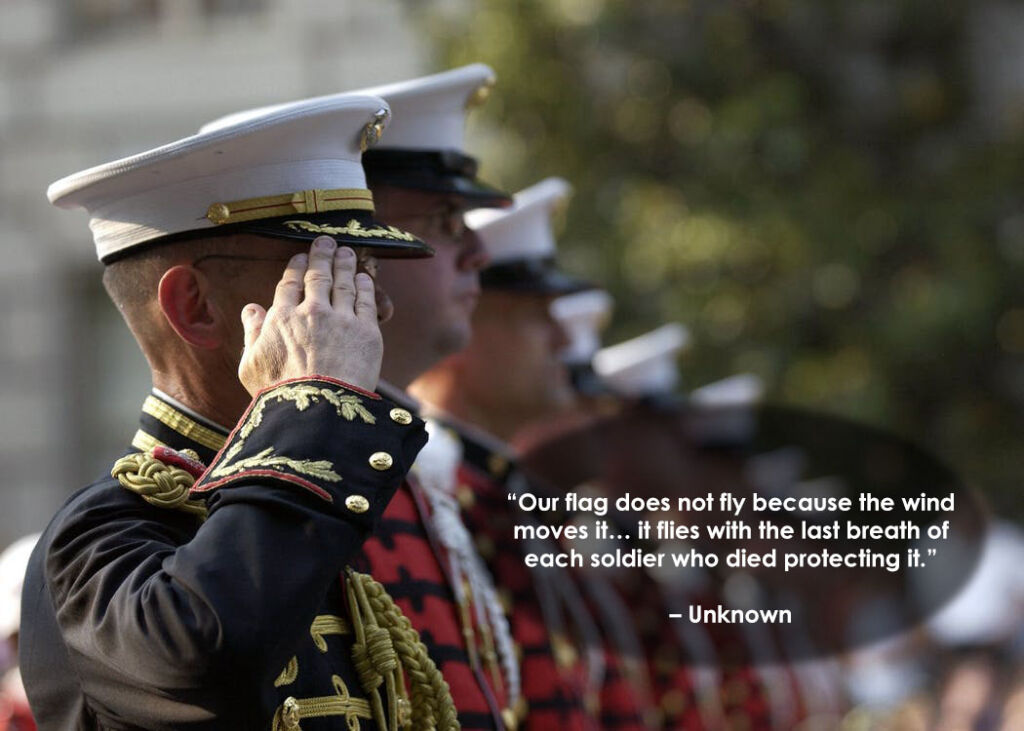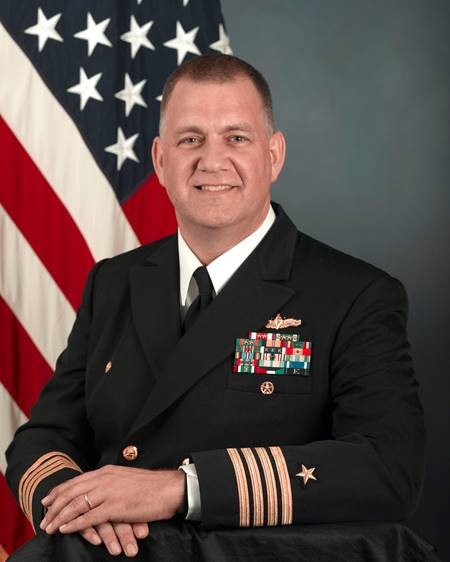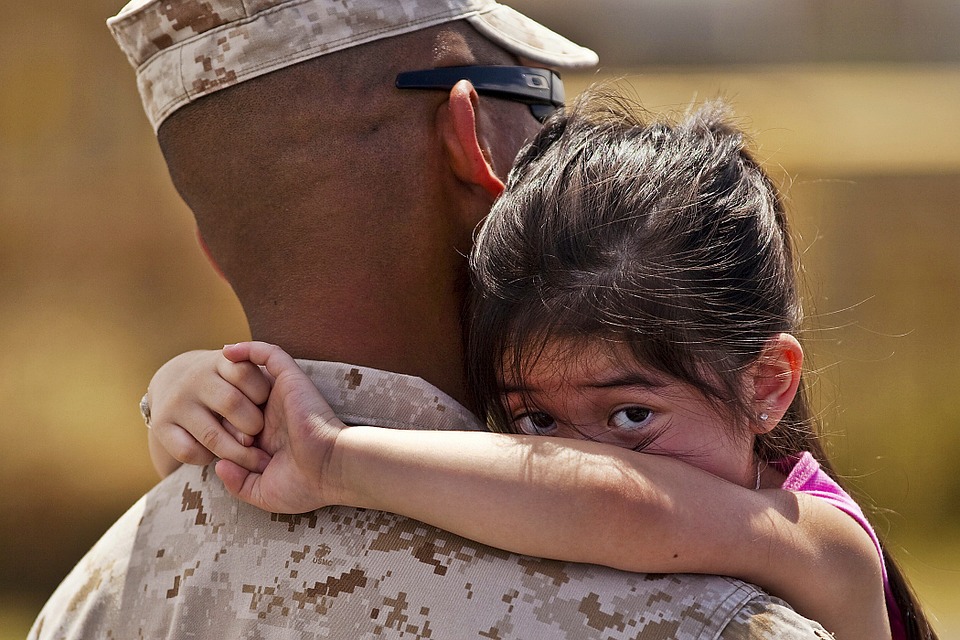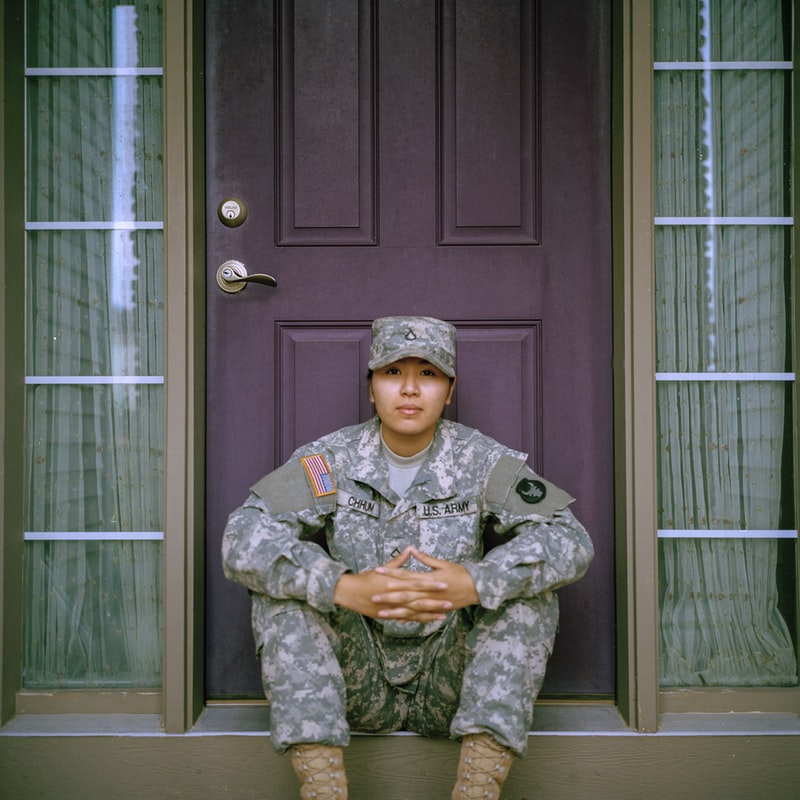
With Respect, Honor, and Gratitude: Thank You Veterans
For this special edition of Confluence, our Center would like to take a moment to thank and honor the men and women who serve and protect our country. It is important to not take our freedom and safety for granted. That is why it is crucial to take any and all opportunities to thank those who have made the commitment to represent, honor, and secure our way of life.
Leaders Helping Veterans to Successful Civilian Employment Transitions: An Interview with Center’s Advisory Board Member, Captain Steve Vincent, PMP
By Linda Crerar
(*Note: This interview was first published in our June 2020 edition Confluence. We wanted to highlight it again for our Veterans Day special edition.)

There is an increased demand in all sectors of the community for professionals, who understand the complex nature of Public Safety, Security and Emergency Management. Combined with an aging workforce at or near retirement, the demand has dramatically increased the need to prepare students to enter these fields. Washington State companies and organization are seeking now more than ever employees in the security industry, law enforcement, emergency communications, and public health care professionals with emergency and disaster management experience. Our military population is a key source of talent to meet these demands. However, the current approach to transitioning military to these professions fails to fully leverage their experience and education and lacks consistency.
The Center, with leadership from its Advisory Board Members such as Steve Vincent, got actively involved in helping educate employers and Veterans to facilitate successful transitions to civilian jobs. The Center produced a guide that provides a crosswalk based on the skill level and experience of the veteran to determine what certification, licenses and credentials would be utilized by civilian employers.
Steve is a retired veteran who served 25 years in the Navy before making his own transition to civilian employment, He shared with us his personal journey going through his own transition process in an interview with me. Steve shared about the importance of telling his story and in hope that it will help other military members going through transition. Steve provides great insights and stories about volunteer work with the veteran community.
Steve said his experience as a mentor working with Hire Our Heroes and the Washington State Veteran Employee’s Resource Groups (VERGs), which we set up through an executive order from Governor Inslee. According to VERG, its purpose is “to help integrate the experience, values, and knowledge of both veterans and service members in state employment. This Employee Resource Group supports former and active military personnel and their families through a system of comprehensive activities and developmental opportunities.”
There was a massive career fair as part of Gov. Inslee’s executive order that created a Washington State Transition Council. This Council was co-chaired by the JBLM Base Commander and the Director of Veteran’s Affairs and was focused on how we bring the private sector, Department of Defense (DOD) and the state agencies together on solving common problems and reducing barriers.
“I worked for several years in a volunteer capacity with one of the subgroups on technical education and apprenticeships with educators from the community colleges and staff from the State Board for Community and Technical Colleges (SBCTC),” Steve informed Linda and continued with, “We looked at how we educate employers and veterans on the pathways that they can take. It really was a grass roots volunteer effort.”
Over the course of three years, Steve worked with the VERGs and the Transition Council organizing and attending transition summits and career fairs held at Joint Base Lewis McCord. Steve said, “Having a table at the career fair was not always the best use of time so what I would do is typically stand in the middle of an aisle and just look at faces and you could see the faces of the people that were trying to figure out what to do? I would work with folks that were feeling lost or overwhelmed by how to get into the private civilian company’s and do a warm handoff to the companies.”
Steve also mentioned, “I would have companies who would listen to me talking to people and they told me they realized that they were missing out on some talent because they were not asking the right questions. There is a great talent base in those veterans who are leaving active duty and about half stay here in Washington State and it is important for employers to tap into them and talk their language.” He went on to explain how, “There are a whole lot of jobs in the military that match up with what civilian employers need in the private sector and it is important to help both employer and veteran match up their knowledge, skills, abilities and certifications so they are better set up for transitions.”
It was a pleasure talking with Steve about the importance of supporting of veterans in their transitions to civilian careers and reminded of his problem-solving aptitude. Listening skills and passion and focus for helping people successfully resolve their challenges. Steve has been a Member of the Center’s Advisory Board for over five (5) years and has always delivered on his commitments with professionalism, integrity, and accountability.
To view Steve’s interview and read the transcript, click here:
https://soundcloud.com/user-851177719/interview-with-steve-vincent
To read Steve’s article from the U.S. Naval Institute Proceedings, click here:
https://www.coehsem.com/wp-content/uploads/2020/06/LF-Vincent-May20_copyright.pdf
Veteran Resources
The term “Veterans who are minorities” means Veterans who are identified as African Americans, Asian American/Pacific Islander, Hispanic, Native American/Alaska Native and Native Hawaiian. As a minority Servicemember or Veteran, you may qualify for a wide range of benefits offered by the Department of Veterans Affairs. We encourage you to learn about available resources and programs and to apply for the benefits you may have earned.

The Center for Minority Veterans is the Department of Veterans Affairs model for inter-and intra-agency co-operation, to ensure all veterans receive equal service regardless of race, origin, religion, or gender.
The National Association for Black Veterans, Inc (NABVETS)
NABVETS provides strategic advocacy with Congress, the Federal Administration, State Administrations and other agencies and organizations on behalf of all veterans; and particularly African American veterans, women veterans, veterans disabled, homeless, incarcerated or of limited means. NABVETS, with over 50 chapters across the nations and five State Commands works in ‘Unity with the Community’ to end homelessness, empower low-income and minority veterans and advocate for disadvantaged youth in all matters related to their successful passage into adulthood. NABVETS works closely with the Veterans Enterprise Training & Services Group (VETS Group), NAACP Veterans Affairs Committee and the Consumer Action Agency to provide outreach, training and support to veterans and their families transitioning back into the community.
Resources for military and Veteran family members
If you’re a military spouse or surviving spouse, find out if you’re eligible and how to apply for the Department of Defense’s Spouse Education Career Opportunities (SECO) program. And learn about other resources to help you build your career or start a small business.
VA Education and Training Benefits
VA education benefits help Veterans, service members, and their qualified family members with needs like paying college tuition, finding the right school, or training program, and getting career counseling. Learn how to apply for and manage the education and training benefits you’ve earned.
- Veterans’ Educational Assistance Program (VEAP): You may be able to continue your education by using part of your military pay to help cover the cost of school. Find out if you can get benefits through the Veterans’ Educational Assistance Program (VEAP)—a $2-to-$1 government-match program for educational assistance.
Veteran Readiness and Employment (VR&E)
You may receive Veteran Readiness and Employment (VR&E) (Formerly known as Vocational Rehabilitation and Employment) services to help with job training, employment accommodations, resume development, and job seeking skills coaching. Other services may be provided to assist Veterans and Service members in starting their own businesses or independent living services for those who are severely disabled and unable to work in traditional employment. To learn more about the VR&E program, review the VR&E Process page, and the tabs and links on this page. Click on the “How to Apply” tab to apply for VR&E services.
The Veterans Guide to Academic Aid and Programs

In the past years, the government has put forth great financial efforts to encourage veterans to go back to school. According to the Department of Veterans Affairs, it is working. Military service members are going back to school and making use of the benefits offered by the government. If you or someone you know has served in the military and want to go back to school, there are probably a good number of awards you qualify for on a governmental or institutional level. CollegeStats designed this guide to outline the different awards and programs that provide educational assistance to veterans and their dependents.
Center for Women Veterans (CWV)
Women have a need to be part of a community, and this is especially true for women veterans who no longer have the military community that they previously had. Becoming a productive member of a women veteran’s community can help foster self-esteem, confidence, and a social network that can be invaluable.

